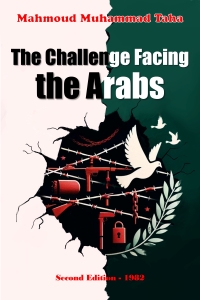The Confusion of Sudanese Officials
The confusion, anxiety, and despair that followed in the wake of defeat, casting a shadow of gloom over the actions of politicians, officials, media figures, and writers throughout the Arab world, left an even worse impact in Sudan.
In Sudan, we had political parties and politicians who once claimed that their zeal for protecting the morals of the people and their concern for safeguarding the people’s faith from the atheism promoted by communism - a belief system upon which communism builds its ideology - had driven them to violate the sanctity of democracy. They went so far as to amend the interim constitution to enact laws that banned the activities of the Sudanese Communist Party and expelled its eight representatives from the Constituent Assembly.
Beyond that, these same politicians still insist on drafting the permanent constitution in a way that unjustly infringes on the basic rights of communist citizens.
Yet today, these very same politicians are calling on all Arabs to align their economies, dealings, and struggles with their Russian friends. They blatantly contradict themselves by saying that our friendship with the Soviet Union does not mean we will become communists.
This claim is clearly flawed. What, then, would prevent the general public from embracing communism when their officials, media figures, and writers are constantly praising the loyalty, greatness, and strength of our communist friends?
Exploiting the Confusion of the Press
Our newspapers - even the conservative ones - are now overflowing with communist articles and styles, under headings such as “Peaceful Coexistence,” “The Socialist Interpretation of the Arab-Zionist Conflict,” or “The Chinese Military Analysis of the Setback.” Communist-style writing in Arabic is filled with unfamiliar terms that are used as substitutes for depth of thought, such as “Dialectical Class Analysis,” “American Imperialism,” “Defeatist Theory,” “Right-Wing Bureaucratic Tone,” “Defense of the Doctrines of Liberation,” “Opportunistic Currents,” “Peaceful Coexistence and Automatic Development,” and “Replacing the Mechanical Deterministic Framework with the Probabilistic Framework.”
Or take this example: “It is what enables revolutionary nationalist movements to confront the reactionary colonialist attack and equips them with a comprehensive understanding to formulate a revolutionary and realistic strategy that monitors the probabilities and possibilities of armed colonial intervention while taking into account the repercussions of the policy of peaceful coexistence.”
These are just a few examples of what fills our newspapers today. Such language only increases the current confusion, spreads intellectual anxiety, and leads half-educated individuals to believe that by repeating these phrases in their writings, they appear as knowledgeable intellectuals.
This misconception has ensnared people who are not communists - individuals who, in fact, fiercely oppose communism. Yet, when you read their writings, you might mistake them for communists.
And now, the Sudanese Communist Party has found, amidst the darkness of this confusion, opportunities it has never encountered - or barely encountered - throughout its long history. It has not wasted this chance; under the banner of "erasing the effects of aggression" and combating "Zionism and Anglo-American imperialism" (as it puts it), it has been relentlessly driving the people toward the fold of Marxist-Leninist communism.

